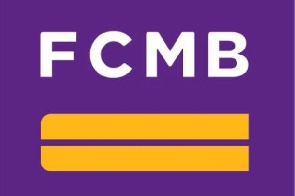Authoritative brands are few, yet they’re everywhere. From Google’s digital dominance to Patagonia on the high street, select brands have built a consistent and trusted reputation and are rewarded by customers over and over.
In increasingly competitive markets, authority is now a prerequisite for performance. Brands commanding industry authority have loyal customers and find it easy to attract new customers thanks to a reputation for quality and consistency. They better weather market turbulence, command price premiums, reduce churn, and enjoy stronger word-of-mouth, all of which contribute to long-term profitability and sustainable growth.
While authority, and its partner trust, are built over time, key choices can fast-track any brand to build a perception of authority in your industry These decisions revolve around initial brand strategy as well as continue marketing investment, and when they align to create a clear and consistent story of your brand, you’ll win customers — and keep them.
Three Key Questions to Build Industry Authority
Before you can project authority, you need to know what it means in your industry and for your audience. The best brands have a crystal clear understanding of who they are and how they serve their customer base, so answer these three questions.
Who are you?
Like superheroes, every founder has an origin story, a pivotal moment in their lives where they took a business idea from fantasy to reality. This story can define your connection to customers’ problems and highlight your expertise as the right person to provide the solution.
A strong story grounds your business and enhances your authority among customers. Airbnb’s origin story — air mattresses on a San Francisco living room floor — has always highlighted the startup’s humble beginnings and created an authentic narrative around its founder, Brian Chesky.
Who do you serve?
Defining your audience is essential for any branding activity, but to craft a brand persona that customers implicitly trust, you must know your customers inside out. Not just how to find and reach them, but their deeply held values and commitments, their lifestyle choices and aspirations.
Younger consumers, for example, are more responsive to social and ethical commitments. Emphasizing these concerns in your origin story or offering clarity on your supply chain can build trust among this demographic. Meanwhile, older consumers may prefer a story founded on tradition and history. Tailoring that story to resonate with your audience is a crucial building block for an authoritative brand.
How do you serve them?
Finally, ask yourself how you meet your customers’ needs and what makes you different — better — than your competitors. There is something unique about how you solve problems for your customers: it could be as complex as an innovative solution, or as simple as eliciting a certain emotion from them. Whatever it is, understanding and communicating it separates you from your competitors and establishes you as a trusted provider in the eyes of new and returning customers alike.
Building Authority in a Digital World
With a profound understanding of who you are, you’ll know the best way to craft a compelling narrative around your brand. This is the platform for branding activities that establish your expertise in your industry. Now it’s time to build and promote your brand assets to cultivate an aura of authority.
A Strong Foundation: Your Name and Domain
In a digital world, your name and domain name are your first impression and can have a big impact on whether you’re perceived as an industry authority and trusted source, or another pop-up pretender.
Short, memorable names convey a sense of authority through their exclusivity: for example, single-word names are in short supply so consumer brands like Apple and Amazon, or SaaS firms such as Loom and Oracle, leave an immediate impression on customers.
The challenge for emerging brands is to find available names with matching domains, as your domain name should be an exact match of your brand name, plus a strong extension. If not, you dilute your authority. Loom migrated from useloom.com to loom.com at a key stage for growth, reinforcing itself as the trusted source for video messaging.
Alongside your name, a relevant and recognized domain extension is essential. 76% of consumers agree that familiarity with a domain extension enhances trust in a brand, and 70% place implicit trust in .com domain websites. A very short list of alternative extensions, including .co, .io, and .ai, can be considered for brands in the relevant vertical.
Content Marketing: Share Your Expertise
Content marketing is a key activity to expand your authority, and it is crucial for customer trust. Research undertaken by Adobe in 2022 revealed that 72% of consumers trust brands more when they receive relevant, timely content.
What’s more, as we enter the AI era and tools such as ChatGPT are increasingly used by consumers to explore the market and compare brands, content plays a newly important role. Branded, authoritative content is interpreted and returned by LLMs, reinforcing your brand as a trusted source of information.
Hubspot’s blog is a paradigm for this strategy, with its expert guides and long-form content on sales and marketing has worked to build its reputation as one of the go-to CRMs for serious brands. In 2025, content like that on Hubspot’s blog — long-form, highly educational — outperforms more frequent, lower-quality posting. Identify customers’ pain points and provide effective content that tackles their issues, share your own story or highlight your customers’ experiences, and become a recognized expert in your industry.
SEO: Rise Above the Noise
While LLMs are changing the face of online search, SEO remains highly relevant, with 77% of consumers using Google to find business information. A strong SEO strategy allows you to literally rise above your competitors in search engine results pages, and correlates strongly with consumer trust: 80% of people say they trust brands more when they’re in the top hits for online search, rising to 89% among 18 – 24s.
Your content strategy can contribute to SEO by targeting and ranking for low-competition keywords among your target audiences’ search terms. In addition, work towards getting mentioned across the web to raise your backlink profile, concentrating on reputable outlets with a high domain ranking.
Trust is Earned, Not Claimed
When building an authoritative, trusted brand, the thread of authenticity must run through everything you do. From your name and domain to your content strategy, authenticity is the lifeblood of online authority, and when customers perceive you as the real deal, they’ll trust you to deliver on your promises.
Authenticity alone isn’t enough, though. Trust is earned slowly, through repeated, consistent contact with your customers. The first impression of an exclusive domain is built upon with informative content, and reinforced through repeated discovery of your brand across the web.
Every founder is uniquely solving customers’ problems and, therefore, has the chance to build an authoritative brand. Set industry authority as a key goal, and back it up with substance at every touchpoint. Share real insights, demonstrate results, and show up consistently. Authority doesn’t come from shouting the loudest; it comes from showing clarity, value, and integrity, over and over again.

 Entertainment4 months ago
Entertainment4 months ago
 Politics4 months ago
Politics4 months ago
 Breaking News5 months ago
Breaking News5 months ago
 Breaking News6 months ago
Breaking News6 months ago
 Breaking News6 months ago
Breaking News6 months ago
 Breaking News6 months ago
Breaking News6 months ago
 Breaking News6 months ago
Breaking News6 months ago
 Breaking News5 months ago
Breaking News5 months ago


